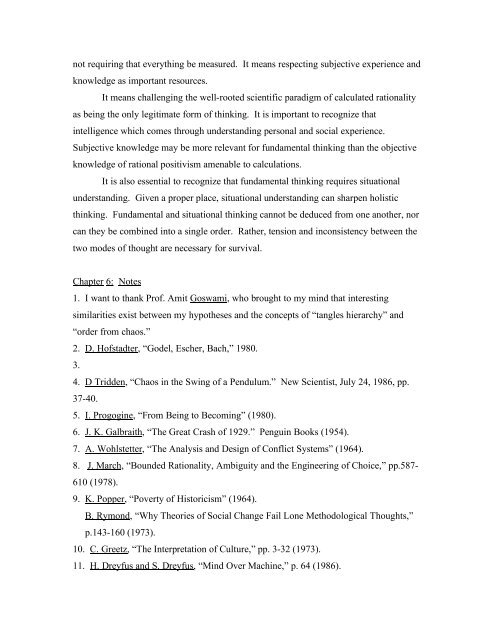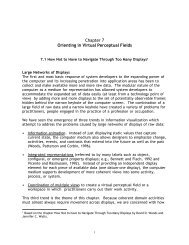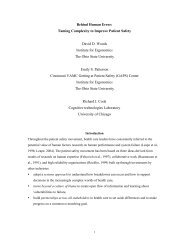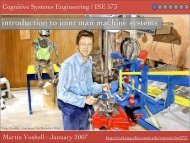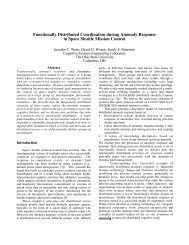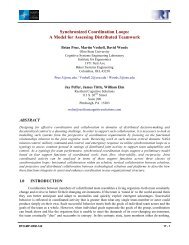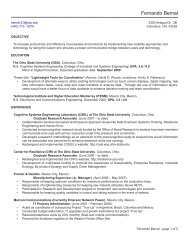Fundamental Surprises Zvi Lanir Decision Research 1201 Oak ...
Fundamental Surprises Zvi Lanir Decision Research 1201 Oak ...
Fundamental Surprises Zvi Lanir Decision Research 1201 Oak ...
- No tags were found...
You also want an ePaper? Increase the reach of your titles
YUMPU automatically turns print PDFs into web optimized ePapers that Google loves.
not requiring that everything be measured. It means respecting subjective experience and<br />
knowledge as important resources.<br />
It means challenging the well-rooted scientific paradigm of calculated rationality<br />
as being the only legitimate form of thinking. It is important to recognize that<br />
intelligence which comes through understanding personal and social experience.<br />
Subjective knowledge may be more relevant for fundamental thinking than the objective<br />
knowledge of rational positivism amenable to calculations.<br />
It is also essential to recognize that fundamental thinking requires situational<br />
understanding. Given a proper place, situational understanding can sharpen holistic<br />
thinking. <strong>Fundamental</strong> and situational thinking cannot be deduced from one another, nor<br />
can they be combined into a single order. Rather, tension and inconsistency between the<br />
two modes of thought are necessary for survival.<br />
Chapter 6: Notes<br />
1. I want to thank Prof. Amit Goswami, who brought to my mind that interesting<br />
similarities exist between my hypotheses and the concepts of “tangles hierarchy” and<br />
“order from chaos.”<br />
1. 2. D. Hofstadter, “Godel, Escher, Bach,” 1980.<br />
2. 3.<br />
3. 4. D Tridden, “Chaos in the Swing of a Pendulum.” New Scientist, July 24, 1986, pp.<br />
37-40.<br />
4. 5. I. Progogine, “From Being to Becoming” (1980).<br />
5. 6. J. K. Galbraith, “The Great Crash of 1929.” Penguin Books (1954).<br />
6. 7. A. Wohlstetter, “The Analysis and Design of Conflict Systems” (1964).<br />
8. J. March, “Bounded Rationality, Ambiguity and the Engineering of Choice,” pp.587-<br />
610 (1978).<br />
9. K. Popper, “Poverty of Historicism” (1964).<br />
B. Rymond, “Why Theories of Social Change Fail Lone Methodological Thoughts,”<br />
p.143-160 (1973).<br />
10. C. Greetz, “The Interpretation of Culture,” pp. 3-32 (1973).<br />
11. H. Dreyfus and S. Dreyfus, “Mind Over Machine,” p. 64 (1986).


